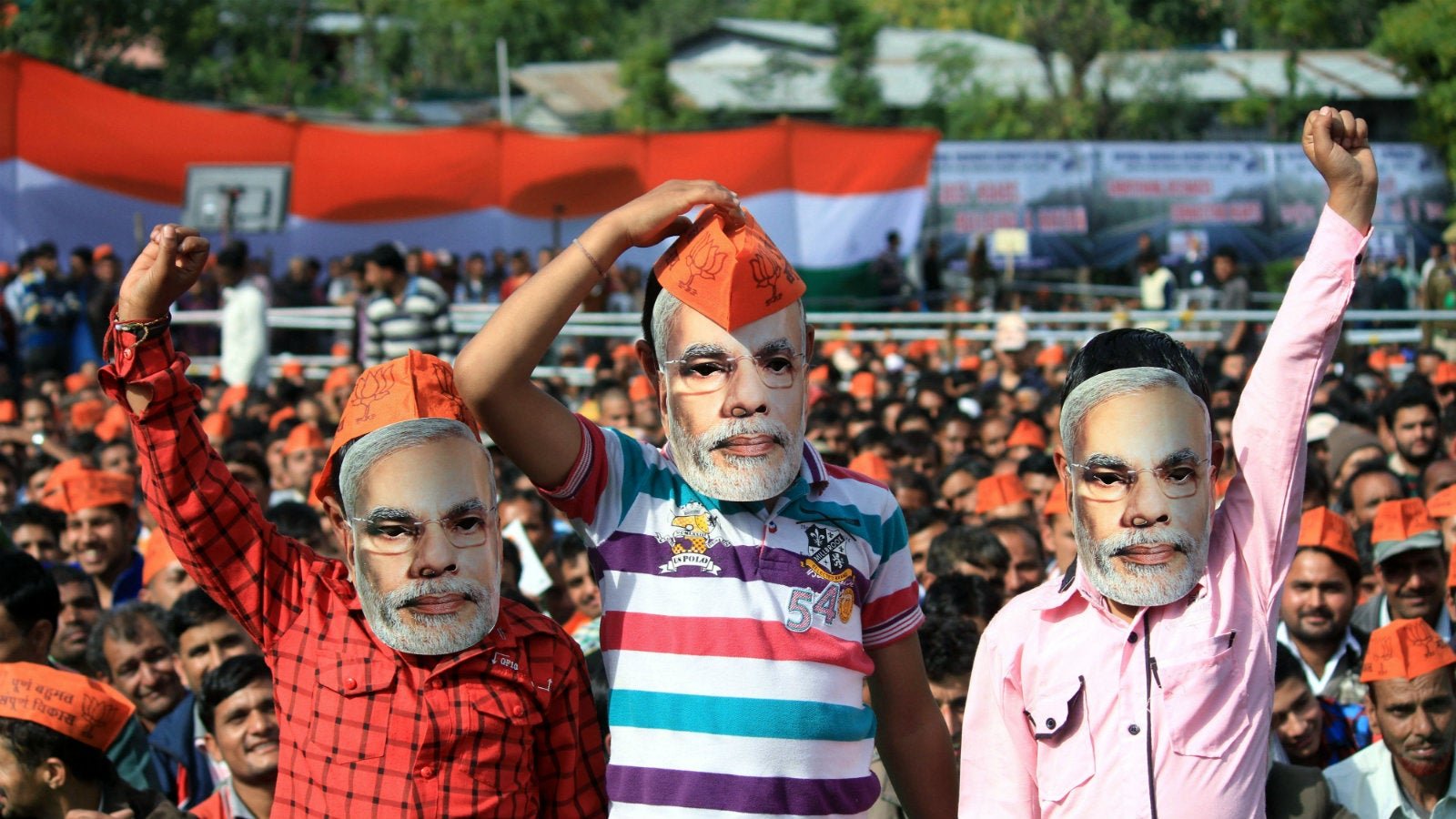The Sensex swings to the BJP’s beat—but Bihar just killed the party
This post has been updated.


This post has been updated.
Stock markets in India love the Bharatiya Janata Party (BJP).
Key equity indices in the country soared after prime minister Narendra Modi came into power. But, with the BJP’s defeat in Bihar, equity markets today (Nov. 09) tanked. The Sensex fell 143.84 points to close at 26,121.4 points, after crashing by almost 600 points in early morning trade.
The Bihar state assembly elections were a major loss for the BJP—and Modi—with the Nitish Kumar-led Grand Alliance winning by a clear majority on Nov. 08.
“(The) Bihar election result has not gone the way the market would have liked it to. Thus, it is likely to see a knee-jerk reaction on Monday and could witness an initial slide of 2-3%,” Hitesh Agarwal, head of research at Reliance Securities, a brokerage firm, said in a note on Nov. 08.
Quartz culled out data for the movement of the Sensex after major state government election results were announced in the last few years. Here is what we found:
In 2013, the BJP came to power in three states in the country, and emerged as the single-largest political party in the Delhi elections. The results were announced on the same day, and the markets cheered. The next year, Maharashtra and Haryana welcomed BJP-led governments, and investors approved.
Much of this can be attributed to the fact that investors are keenly looking at the pace of reforms the BJP has promised.
After 2008, with the global economy facing chronic growth challenges, India, too, was reeling. The Congress-led government at the centre simply failed to restart the growth engine.
Investors subsequently pinned hopes on the new government and the BJP promised big bang reforms for the economy. While many of these reforms are still in limbo, BJP’s upset in Bihar will now increase concerns that Modi’s economic agenda might receive a further setback.
The post was updated to include the closing value of the Sensex, after trading ended for the day.